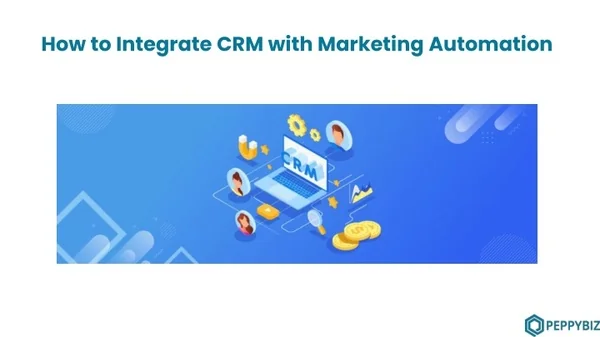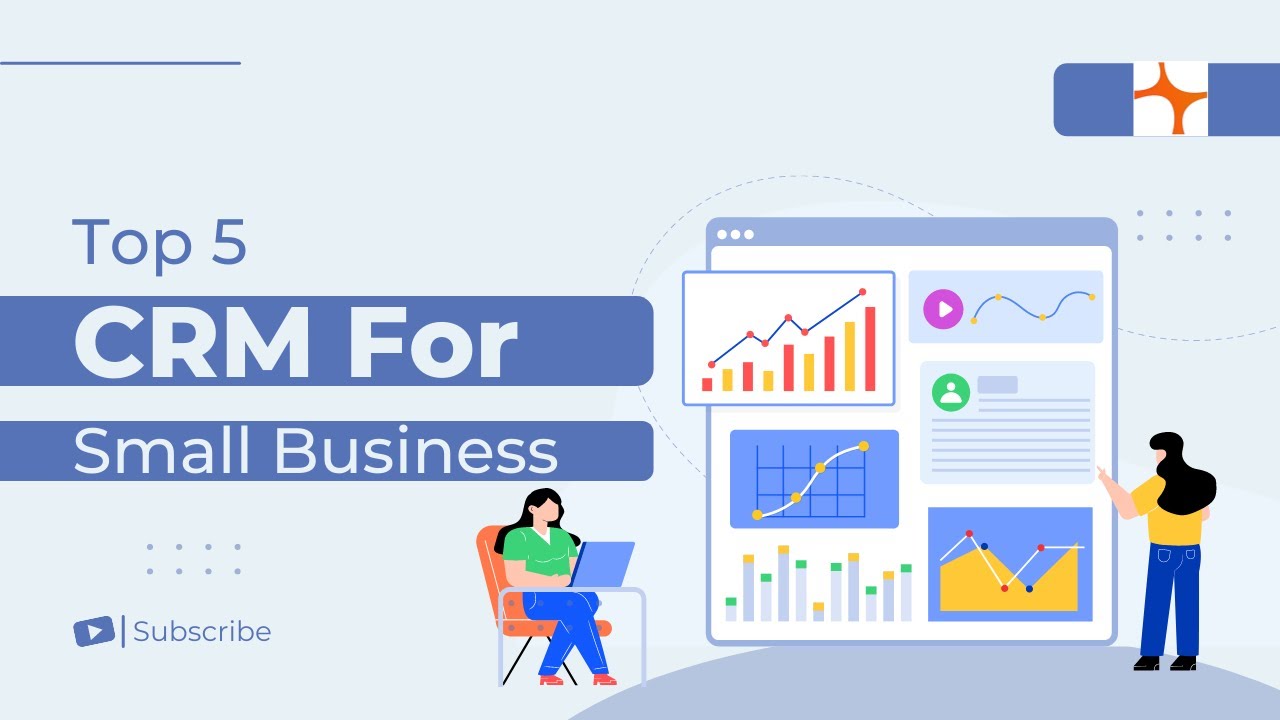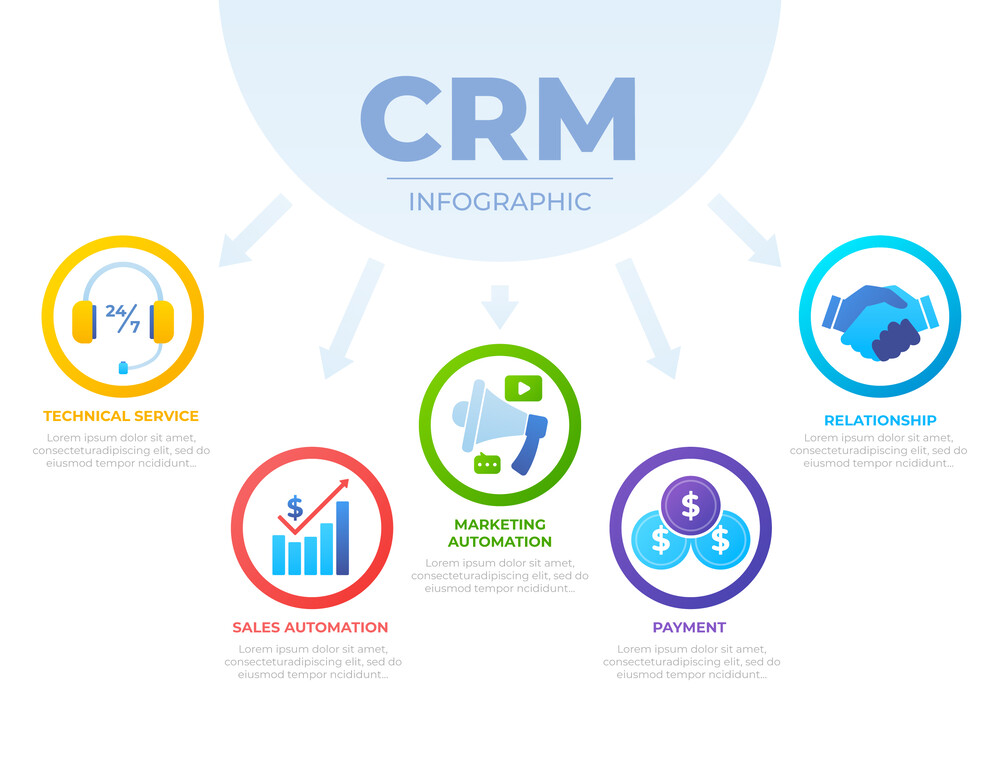
Introduction: Revolutionizing Marketing with CRM and Automation
In today’s fast-paced digital landscape, businesses are constantly seeking innovative ways to connect with their audience, nurture leads, and drive conversions. The traditional marketing approaches are no longer sufficient. The emergence of Customer Relationship Management (CRM) systems combined with marketing automation has become a game-changer, offering unparalleled opportunities to streamline operations, personalize customer experiences, and achieve remarkable growth. This guide delves deep into the world of CRM for marketing automation, exploring its benefits, features, and practical applications. We’ll uncover how you can leverage these powerful tools to transform your marketing strategies and achieve your business objectives.
What is CRM? A Deep Dive
At its core, a CRM system is a technology that helps businesses manage and analyze customer interactions and data throughout the customer lifecycle. It’s much more than just a contact database; it’s a centralized hub for all customer-related information, including contact details, purchase history, communication logs, and preferences. A robust CRM system provides a 360-degree view of each customer, allowing businesses to understand their needs, predict their behavior, and tailor their interactions accordingly.
Key functionalities of a CRM system include:
- Contact Management: Storing and organizing customer information, including names, addresses, phone numbers, and email addresses.
- Lead Management: Tracking leads throughout the sales funnel, from initial contact to conversion.
- Sales Automation: Automating repetitive sales tasks, such as lead assignment, email follow-ups, and quote generation.
- Customer Service: Managing customer inquiries, resolving issues, and providing support.
- Reporting and Analytics: Generating reports and dashboards to track key performance indicators (KPIs) and gain insights into customer behavior.
CRM systems can be deployed in various ways, including on-premise installations, cloud-based solutions, and hybrid models. Cloud-based CRM systems are increasingly popular due to their scalability, accessibility, and cost-effectiveness. They offer the flexibility to access customer data from anywhere with an internet connection, making them ideal for businesses with remote teams or global operations.
The Power of Marketing Automation: Enhancing Customer Engagement
Marketing automation is the use of software to automate marketing activities, such as email campaigns, social media posting, and lead nurturing. It allows businesses to streamline their marketing efforts, improve efficiency, and personalize customer experiences. By automating repetitive tasks, marketers can free up their time to focus on strategic initiatives and creative campaigns.
Key benefits of marketing automation include:
- Increased Efficiency: Automating repetitive tasks saves time and reduces the risk of human error.
- Improved Lead Generation: Automated lead nurturing campaigns can guide leads through the sales funnel and increase conversion rates.
- Personalized Customer Experiences: Tailoring marketing messages based on customer behavior and preferences enhances engagement and builds stronger relationships.
- Enhanced ROI: By optimizing marketing campaigns and tracking performance, marketing automation can improve return on investment (ROI).
- Better Lead Qualification: Marketing automation can help identify high-quality leads and prioritize sales efforts.
Marketing automation platforms offer a wide range of features, including:
- Email Marketing: Creating and sending targeted email campaigns.
- Social Media Marketing: Scheduling and managing social media posts.
- Lead Nurturing: Automating the process of guiding leads through the sales funnel.
- Website Personalization: Tailoring website content based on visitor behavior.
- Analytics and Reporting: Tracking campaign performance and measuring results.
CRM for Marketing Automation: A Synergistic Approach
When CRM and marketing automation are combined, the results are transformative. CRM provides the data and insights, while marketing automation provides the tools to act on that data. This synergy enables businesses to create highly personalized and targeted marketing campaigns that resonate with their audience.
Here’s how CRM and marketing automation work together:
- Data Integration: CRM systems store customer data, while marketing automation platforms use that data to personalize marketing messages and campaigns.
- Segmentation: CRM data can be used to segment customers based on demographics, behavior, and preferences. Marketing automation platforms can then be used to target these segments with specific messages.
- Lead Scoring: CRM systems can track lead behavior and assign scores based on their level of engagement. Marketing automation platforms can then trigger actions based on lead scores, such as sending a sales alert or enrolling a lead in a nurturing campaign.
- Workflow Automation: CRM and marketing automation can be integrated to automate workflows, such as sending welcome emails, following up on leads, and providing customer support.
- Performance Tracking: CRM and marketing automation platforms can track campaign performance and measure results, providing valuable insights for optimization.
The integration of CRM and marketing automation allows businesses to:
- Improve Customer Experience: By personalizing interactions and providing relevant information.
- Increase Sales Conversions: By nurturing leads and guiding them through the sales funnel.
- Reduce Marketing Costs: By automating repetitive tasks and optimizing campaign performance.
- Increase Customer Loyalty: By building stronger relationships with customers.
Key Features to Look for in a CRM for Marketing Automation
Choosing the right CRM for marketing automation is crucial for success. Here are some key features to consider:
- Contact Management: The ability to store and organize customer information, including contact details, purchase history, and communication logs.
- Lead Management: Features for tracking leads, assigning leads to sales reps, and managing the sales pipeline.
- Email Marketing: Integrated email marketing capabilities, including the ability to create and send targeted email campaigns.
- Marketing Automation Workflows: The ability to create automated workflows for lead nurturing, customer onboarding, and other marketing activities.
- Segmentation: The ability to segment customers based on demographics, behavior, and preferences.
- Reporting and Analytics: Robust reporting and analytics capabilities to track campaign performance and measure results.
- Integration Capabilities: The ability to integrate with other tools, such as social media platforms, e-commerce platforms, and customer service software.
- Mobile Accessibility: The ability to access the CRM system from mobile devices.
- User-Friendliness: An intuitive and easy-to-use interface.
- Scalability: The ability to scale the system as your business grows.
When evaluating CRM systems, consider factors such as pricing, ease of use, customer support, and integration capabilities. It’s also important to assess your specific marketing needs and choose a system that aligns with your business goals.
Top CRM Platforms with Marketing Automation Capabilities
Several CRM platforms offer robust marketing automation features. Here are some of the leading options:
- HubSpot CRM: A popular cloud-based CRM platform that offers a comprehensive suite of marketing, sales, and customer service tools. HubSpot’s marketing automation features include email marketing, lead nurturing, and social media management.
- Salesforce Sales Cloud: A powerful CRM platform that offers a wide range of features for sales, marketing, and customer service. Salesforce’s marketing automation capabilities are provided through its Marketing Cloud platform.
- Zoho CRM: A versatile CRM platform that offers a range of features for sales, marketing, and customer service. Zoho CRM’s marketing automation features include email marketing, lead nurturing, and social media integration.
- Microsoft Dynamics 365: A comprehensive CRM platform that offers a suite of applications for sales, marketing, and customer service. Microsoft Dynamics 365’s marketing automation capabilities are provided through its Marketing module.
- Pipedrive: A sales-focused CRM platform that offers a range of features for managing leads, tracking deals, and automating sales tasks. Pipedrive integrates with various marketing automation tools.
Each of these platforms has its strengths and weaknesses. It’s important to research and compare different options to find the best fit for your business.
Implementing CRM for Marketing Automation: A Step-by-Step Guide
Implementing CRM for marketing automation requires careful planning and execution. Here’s a step-by-step guide to help you get started:
- Define Your Goals: Before you start, define your marketing goals and objectives. What do you want to achieve with CRM and marketing automation?
- Choose the Right CRM Platform: Research and compare different CRM platforms to find the best fit for your business.
- Import Your Data: Import your customer data into the CRM system.
- Segment Your Audience: Segment your customer base based on demographics, behavior, and preferences.
- Create Automated Workflows: Design automated workflows for lead nurturing, customer onboarding, and other marketing activities.
- Integrate with Other Tools: Integrate your CRM system with other tools, such as email marketing platforms and social media platforms.
- Test Your Campaigns: Test your marketing campaigns to ensure they are working correctly.
- Track Your Results: Track your campaign performance and measure your results.
- Optimize Your Campaigns: Continuously optimize your campaigns based on your results.
By following these steps, you can successfully implement CRM for marketing automation and achieve your business goals.
Best Practices for Maximizing the Benefits
To get the most out of your CRM for marketing automation, follow these best practices:
- Clean Your Data: Regularly clean your customer data to ensure accuracy and completeness.
- Personalize Your Messages: Personalize your marketing messages based on customer data and preferences.
- Test Your Campaigns: Continuously test your marketing campaigns to optimize performance.
- Track Your Results: Track your campaign performance and measure your results.
- Analyze Your Data: Analyze your data to gain insights into customer behavior and preferences.
- Automate Repetitive Tasks: Automate repetitive tasks to save time and improve efficiency.
- Integrate with Other Tools: Integrate your CRM system with other tools to streamline your marketing efforts.
- Train Your Team: Train your team on how to use the CRM system and marketing automation tools.
- Stay Up-to-Date: Stay up-to-date on the latest CRM and marketing automation trends.
- Seek Expert Advice: Consider seeking expert advice from a CRM or marketing automation consultant.
By implementing these best practices, you can maximize the benefits of CRM for marketing automation and achieve remarkable results.
Challenges and How to Overcome Them
While CRM for marketing automation offers numerous benefits, there are also challenges to consider:
- Data Quality: Poor data quality can hinder the effectiveness of your marketing campaigns. To overcome this challenge, implement data cleansing procedures and regularly update your customer data.
- Integration Issues: Integrating CRM systems with other tools can be complex. To overcome this challenge, choose a CRM platform that offers robust integration capabilities and seek expert assistance if needed.
- User Adoption: Getting your team to adopt a new CRM system can be challenging. To overcome this challenge, provide adequate training and support, and make the system easy to use.
- Complexity: CRM systems and marketing automation platforms can be complex to set up and manage. To overcome this challenge, start with a simple implementation and gradually add more features as you become more comfortable.
- Cost: CRM systems and marketing automation platforms can be expensive. To overcome this challenge, choose a platform that fits your budget and consider starting with a free or low-cost plan.
By addressing these challenges, you can successfully implement CRM for marketing automation and achieve your business goals.
Measuring Success: Key Metrics and KPIs
To measure the success of your CRM for marketing automation efforts, track these key metrics and KPIs:
- Lead Generation: Track the number of leads generated through your marketing campaigns.
- Conversion Rates: Track the percentage of leads that convert into customers.
- Customer Acquisition Cost (CAC): Calculate the cost of acquiring a new customer.
- Customer Lifetime Value (CLTV): Estimate the total revenue generated by a customer over their lifetime.
- Website Traffic: Track website traffic and engagement metrics.
- Email Open Rates: Track the percentage of emails that are opened.
- Click-Through Rates (CTR): Track the percentage of recipients who click on links in your emails.
- Return on Investment (ROI): Calculate the return on investment for your marketing campaigns.
- Customer Satisfaction: Measure customer satisfaction through surveys and feedback.
By tracking these metrics, you can gain valuable insights into your marketing performance and make data-driven decisions to improve your results.
Future Trends in CRM and Marketing Automation
The field of CRM and marketing automation is constantly evolving. Here are some future trends to watch out for:
- Artificial Intelligence (AI): AI is being used to automate tasks, personalize customer experiences, and predict customer behavior.
- Machine Learning (ML): ML is being used to analyze customer data and identify patterns and trends.
- Hyper-Personalization: Businesses are increasingly focusing on hyper-personalization, tailoring marketing messages to individual customers based on their behavior and preferences.
- Omnichannel Marketing: Businesses are using omnichannel marketing to engage with customers across multiple channels, including email, social media, and mobile.
- Voice Search Optimization: Businesses are optimizing their websites and content for voice search.
- Data Privacy and Security: Businesses are prioritizing data privacy and security to protect customer data.
By staying up-to-date on these trends, you can ensure that your CRM and marketing automation strategies remain effective.
Conclusion: Embrace the Future of Marketing
CRM for marketing automation is no longer a luxury; it’s a necessity for businesses that want to thrive in today’s competitive market. By leveraging the power of these tools, you can streamline your operations, personalize customer experiences, and achieve remarkable growth. This guide has provided a comprehensive overview of CRM for marketing automation, including its benefits, features, and practical applications. By implementing the strategies and best practices outlined in this guide, you can unlock the full potential of CRM and marketing automation and transform your marketing efforts. Embrace the future of marketing and start your journey towards success today!

